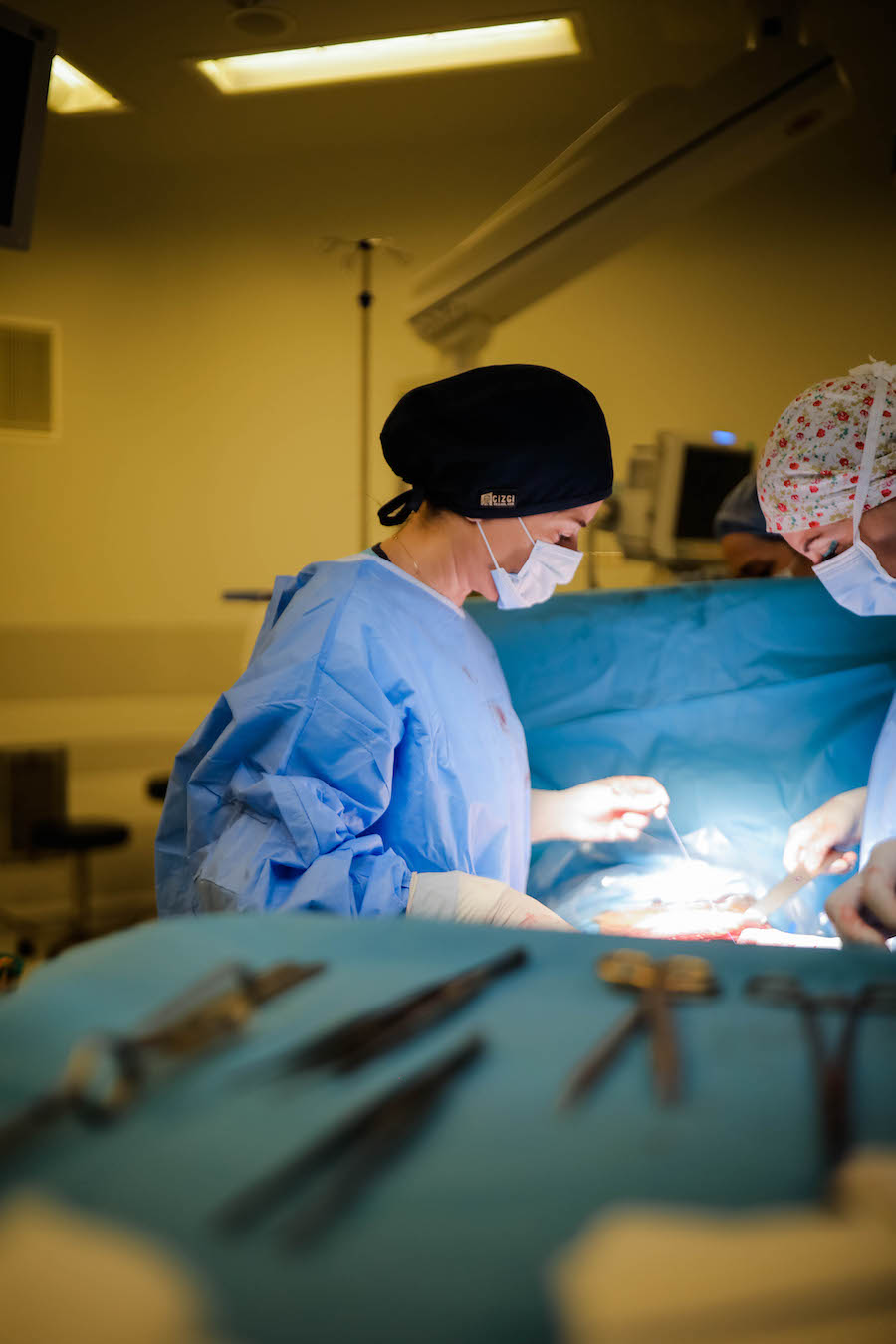Many ovarian cysts can be treated with medications or heal on their own over time with just observation. However, in some cases, surgical removal of large or persistent ovarian cysts or the ones causing symptoms is required. Sometimes, even if there are no symptoms, direct surgery is recommended even if it is not certain whether the cyst is cancerous or not. Ovarian cysts can be removed in two ways, by laparoscopic (closed) surgery or laparotomy (open surgery). In ovarian surgeries, the entire cyst and ovary can be removed and sent to pathology at the same time to check if it is cancerous (frozen). If the pathology results in cancer, it may be necessary to enlarge the surgery and remove both ovaries, uterus and some of the surrounding tissues. In this case, you will definitely enter menopause and your fertility will come to an end.


Many cysts can be removed laparoscopically. Laparoscopy is a surgical method that allows us to perform operations in the abdominal cavity and pelvis without making large incisions in the skin. The laparoscope is an elongated tubular system; it consists of a light source extended through small holes drilled in the abdomen and a camera that transmits images of the abdomen to a television screen. The surgery is performed with thin and long instruments sent through these small holes. Laparoscopy has many advantages over traditional open surgery; the most important of these is shorter hospital stay and faster recovery time; It is also advantageous to have less pain and bleeding and much smaller scars after the operation. Because of these advantages, laparoscopy is always the preferred method. Most people can go home the same day or the next day.
If ovarian cysts are particularly large or are likely to be cancerous, laparotomy, or open surgery, may be preferred. Laparotomy is the classical method, surgery is performed through an incision of
approximately 10-12 cm in the lower abdomen (like a cesarean section). The incision is then closed with self-dissolving hidden sutures. It usually requires a longer hospital stay (two or three days) and a longer recovery time.
The length of time you spend in the hospital after ovarian cyst surgery varies depending on what type of surgery you had. Post-operatively, if you have had general anesthesia, you may feel dizzy and nauseated; these are common side effects of anesthesia and pass quickly. Close monitoring is required for several hours until fully awakened and able to eat, drink and urinate. You will be asked to get up and walk around as soon as possible after surgery to prevent blood clots in your legs. If you have had open surgery, you may need to be hospitalized for a few days; in laparoscopic cyst surgery, you can usually be discharged the same day or the next morning. Recovery time after cyst surgery is different for everyone. It usually responds well to painkillers, although there may be mild abdominal pain for a few days. There is little or no pain in laparoscopic surgeries. Most patients fully recover and return to normal life in about two to four weeks.
Your doctor will let you know if an additional surgery or extra treatment is required after the pathology result of the cyst is removed. If you are not in menopause, your doctor will try to protect your ovaries as much as possible. It is usually possible to remove the cyst and leave both ovaries intact, which means your fertility is not affected. If one of your ovaries needs to be removed completely, the remaining ovary will continue to release hormones and eggs as usual. In this way, you will not enter menopause and your fertility will not be affected. Sometimes both ovaries may need to be removed even if you haven’t gone through menopause (for example, in cases of cancer or extremely large masses). In this case, you enter early menopause (surgical menopause). In this case, your doctor may recommend hormone replacement therapy. After menopause, both ovaries can be removed as they no longer produce eggs. Do not forget to discuss these issues and your fertility expectations with your doctor before the surgery.